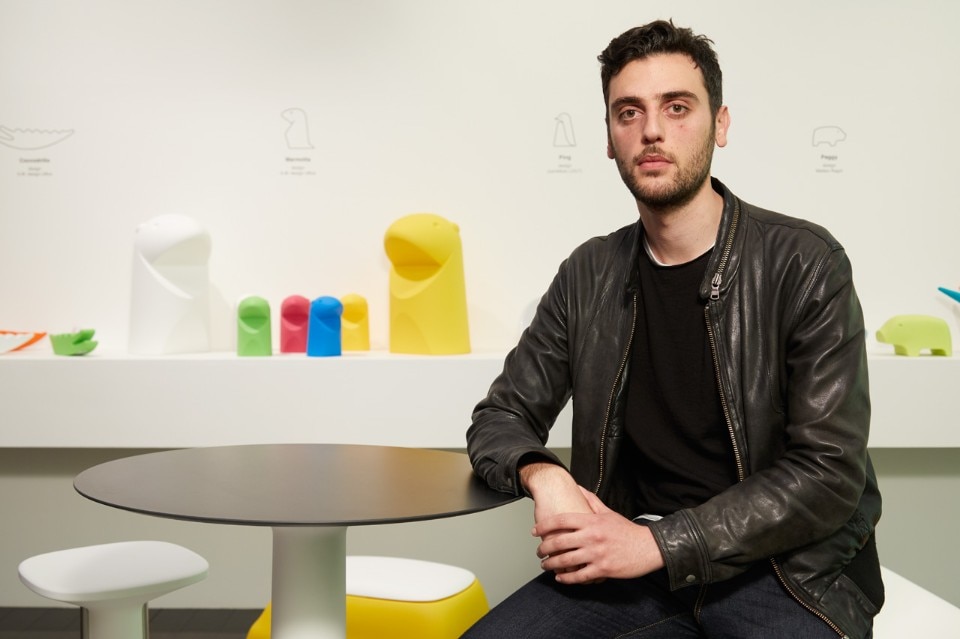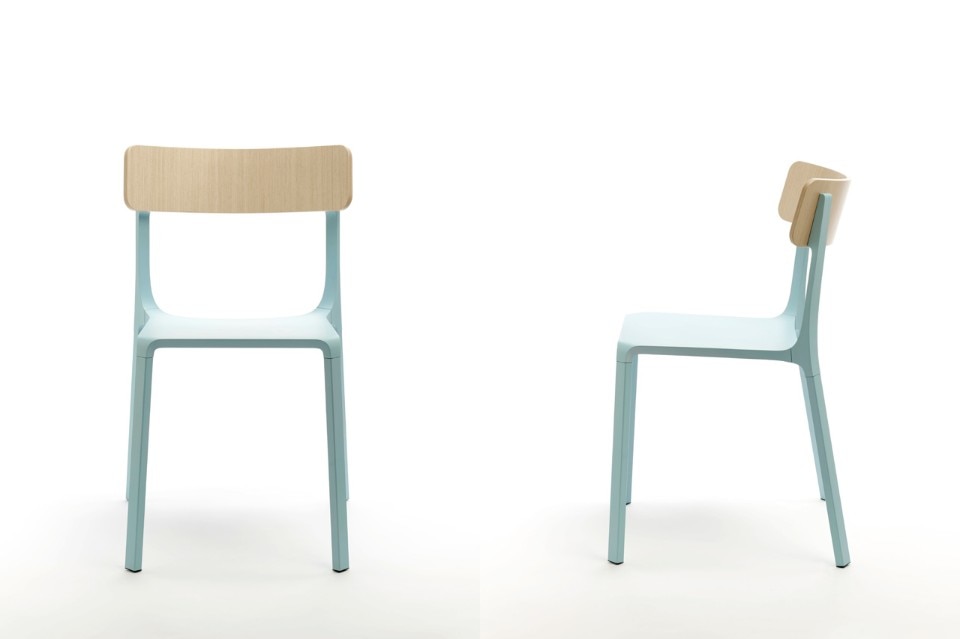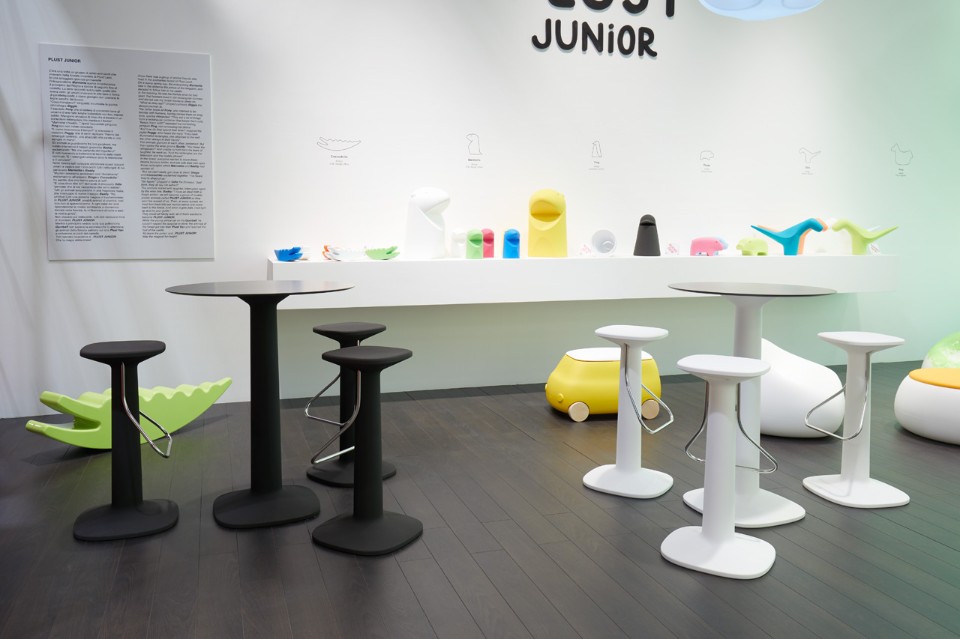
Chiara Alessi: What are the pros and cons of being a Frenchman living in Milan and working with Italian (and French) companies?
Philippe Tabet: People often say Italian companies are only interested in foreigners because they are different but I believe Italian companies have a real desire to obtain the very best by drawing on visions from abroad. As regards France, I don’t know whether I would have been as appealing to a company such as Lexon had I not come via Italy, where I have learnt so much from its industrial situation and culture. Disadvantages might be the fact that Italy is full of designers whereas there are far fewer in Paris and there is a strong focus on design. Perhaps, I am living in the wrong place for rapid growth but I am happy with that.
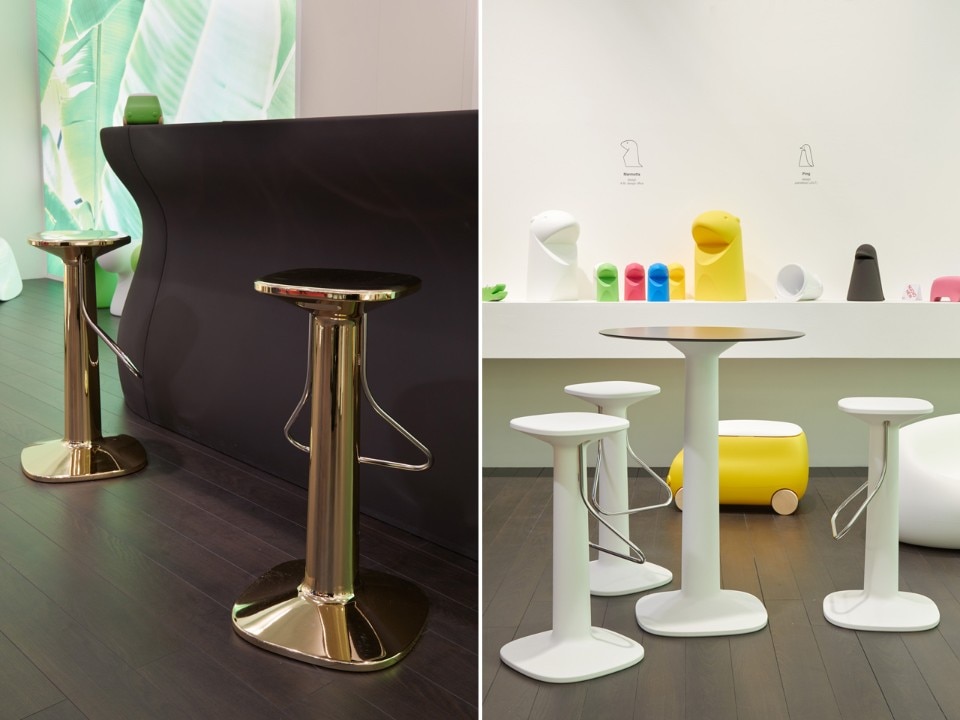
Chiara Alessi: Have you ever felt being a Frenchman in Italy might be a disadvantage?
Philippe Tabet: I think the game is the same for everyone, whether Italian or French. I see it as an honest job in which the results are more important than all the rest. I have never thought that moving to Italy might have been a disadvantage.
Chiara Alessi: Has Italy influenced the way you design products?
Philippe Tabet: It’s a slightly romantic thought but I would say yes. Our surrounding environment changes the way we think and design. Italy wrote the history of design and I live in the design capital. I have seen and still see objects, buildings and places designed by Italian masters. The designer is a translator, a person who sees, touches, experiences and assembles feelings, taking a few elements and forging something. I would say that the environment greatly influences the result. Certainly, this environment impacts on the way I work. Italy has made me realise that, before you start designing something, you must find out what has already been done. This leads me to discard many ideas but always helps me achieve more satisfying results.
Chiara Alessi: You have a very “Spartan” social and communication profile. What is the thought behind this?
Philippe Tabet: I am a reserved person and want to be judged for my work, not for the way I tell stories. I also want to be honest and sincere about what design is today. I prefer to cut down on the explanations and let the objects speak, maintaining a fairly basic profile that favours the pictures. I have always preferred unassuming designers who come up with interesting products. I don’t think it is possible (alone) to produce good communication and good designs. Unfortunately, there is a current trend towards excessive communication at the expense of design but we must remember what our job is.
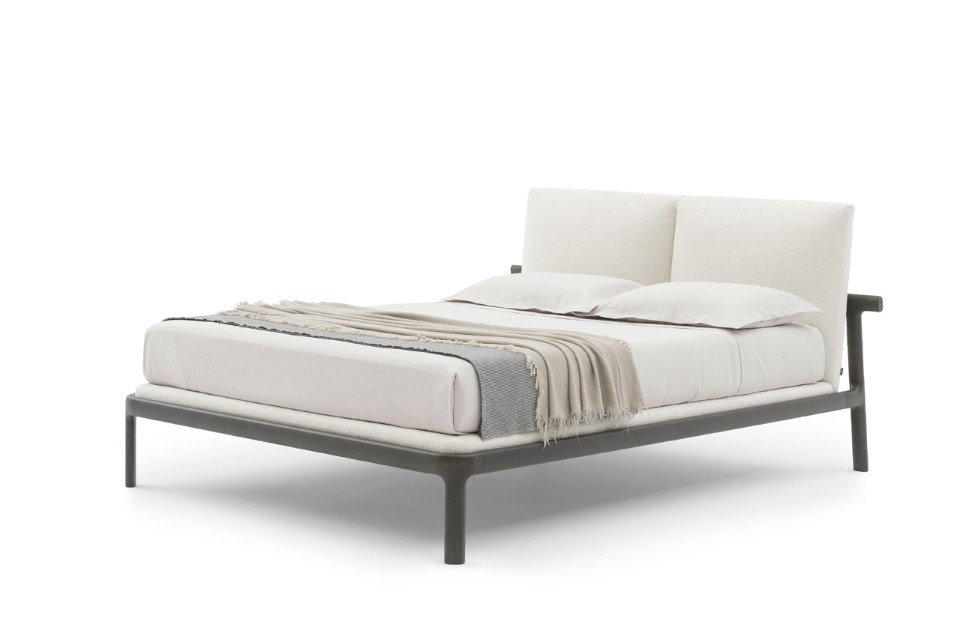
Chiara Alessi: What are you presenting at Design Week?
Philippe Tabet: Tool for Plust: a rotomoulded stool and table, fruit of working on the thickness of plastic to make the design as thin as possible and reduce the “bulky” effect of rotomoulded furniture. The Ruelle chair for Infiniti Design is the outcome of three years’ development following the win at the Infiniti Design Contest 2014. It is formed of several parts in diecast aluminium. The aluminium is coupled with a curved wood back to reference the traditional Parisian bistro chair. Fushimi for Pianca is a wooden bed inspired by Japanese temples and mixing two traditional Italian furniture skills: working with wood and with fabric. Esse Lounge, again for Pianca, expands the Esse seating family with two lounge versions, the first with a solid base and the second with wooden legs. Slide for Lexon is a travel clock presented at Maison & Objet in January and will be in the shops by the end of March.
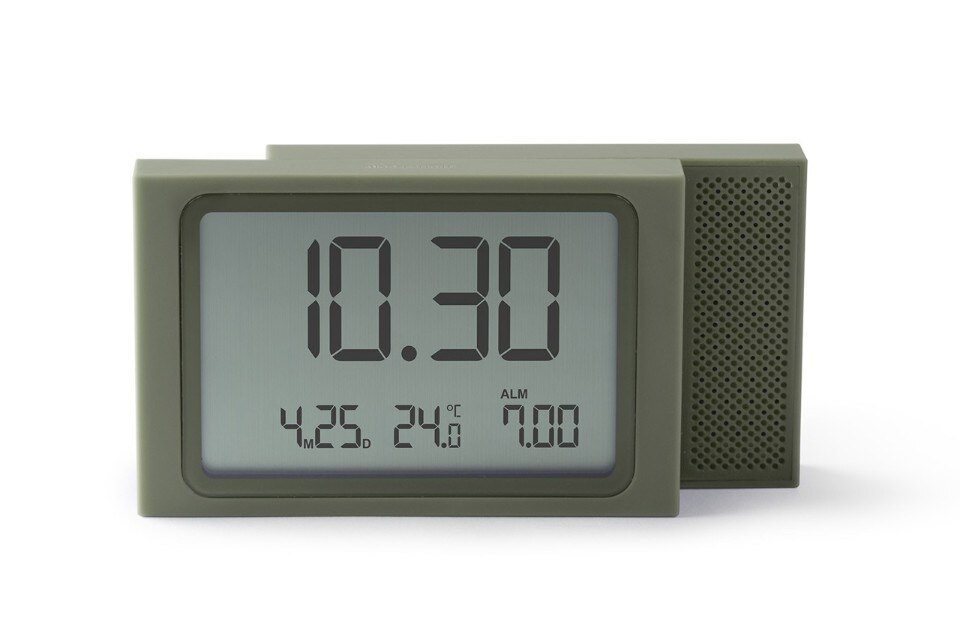
Chiara Alessi: What was the experience with Lexon like? Was it the first time you have worked with a French company?
Philippe Tabet: Lexon is the first French company that has put one of my designs into production but I have worked with other French firms. I have a long history with Lexon and have probably wanted to work with them since I was at university. I love their vision and collaborating with them was a natural step. The first time I contacted them was when I designed the Sweep alarm clock, which they didn’t develop. The second time was at a VIA “speed dating” when, at last, I met the owner and showed him my concepts. He liked some and, after several visits to the company and a closer relationship, they asked me to design a travel clock. That led to Slide. At the moment, we are working on new concepts.
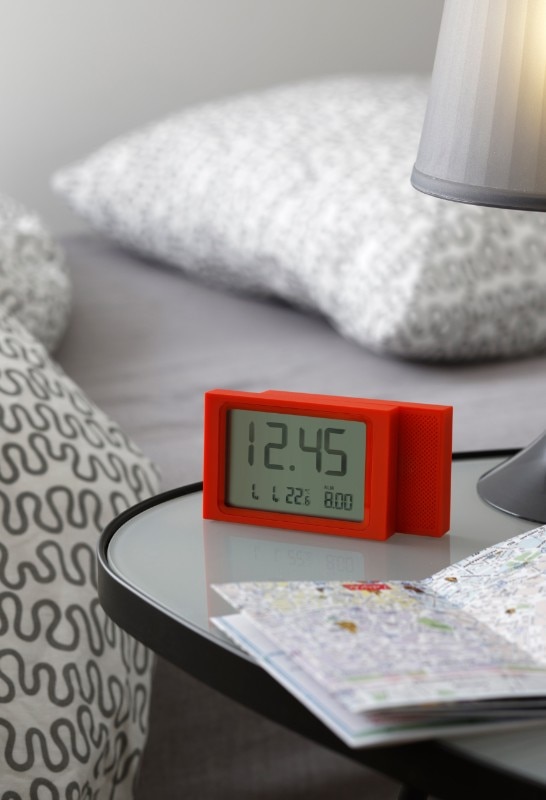
Chiara Alessi: Choose: Norguet, Pillet or Quitllet. Why?
Philippe Tabet: Norguet, without hesitation. I see great knowledge of manufacturing techniques and the industrial world in his work. This makes him a designer who always proposes intelligent products in the way all the parts are assembled or with unexpected materials. I don’t see him as a designer who sells an aesthetic style, or at least not just that.
Chiara Alessi: Choose: Crasset or Sempé? Why?
Philippe Tabet: It’s hard to choose. These two designers fascinate me for different reasons. Inga Sempé for the essential nature of her proposals and her true aesthetic taste. I see much research behind her work although the results are seemingly simple. As for Matali Crasset, I am fascinated by her fearlessness. She seems little concerned by general opinion which makes her take risks, many of which are interesting, others slightly complicated.
Chiara Alessi: What would you change about the Italian design scene? Is there anything you don’t understand or that doesn’t convince you?
Philippe Tabet: Going back to what I said before. I would speak less and do more. In terms of companies, I would push research. I don’t believe many small companies making little decorative objects is what the world expects of a country such as Italy.
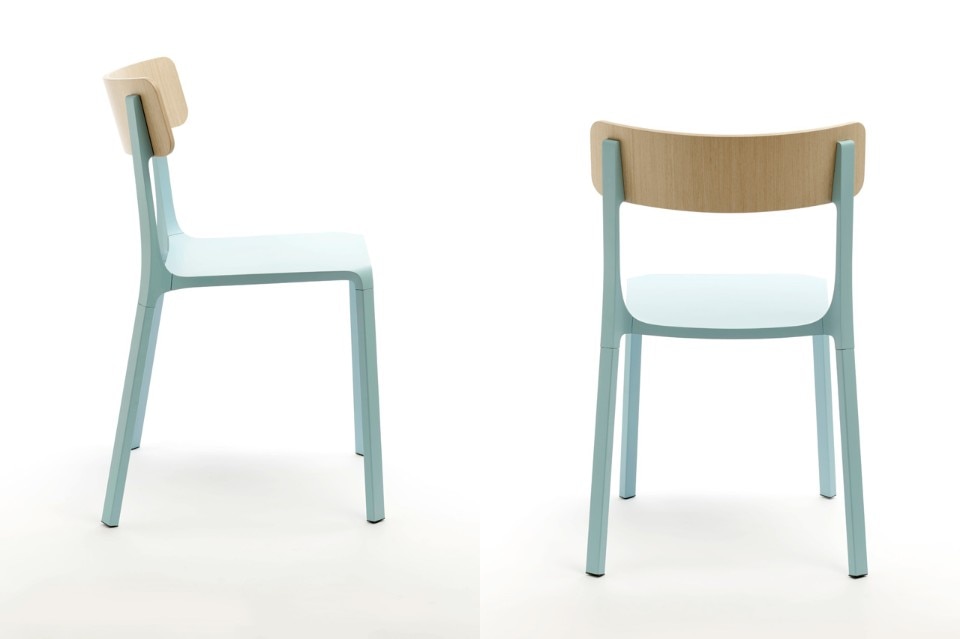
Chiara Alessi: Tell me about your concept of beauty?
Philippe Tabet: I think beauty is closely linked to knowledge and culture, which gives us the keys to understanding things and appreciating them, or not. There is certainly a universal concept of beauty, as in nature. A wild place with no human intervention is something we all agree on. Despite this, I am convinced that beauty is linked to habit, education and the environment around us, as is taste which varies in different countries and cultures. A 100-year-old egg is as disgusting to us as Roquefort cheese to the Chinese. Going back to design, I would say it is similar. The more we learn, the more we appreciate. It is more a work of subtraction than of addition. Decoration (including that based on a concept of beauty) adds and causes an object to stand still in time. It is also time that makes things beautiful. In design, simply because of our different cultures and knowledge, many thought Grcic’s Chair One was dreadful when it came out but it was much admired by those in the business. Passing time has made it iconic and beautiful, for the simple reason that it has been understood. I don’t think about the beauty of an object while designing it. I think about its different components, trying to make them as simple as possible and communicate with each other. An object becomes beautiful when you find intelligent answers to its problems. Beauty must be cultivated.
4–9 April 2017
Philippe Tabet
Tool for Plust Collection – Fiera Rho-Pero, Hall 10, Stand D12
Ruelle for Infiniti Design – Fiera Rho-Pero, Hall 12, Stand C03-D06
Fushimi and Esse lounge for Pianca – Hall 10, Stand A01-B02
Slide for Lexon


